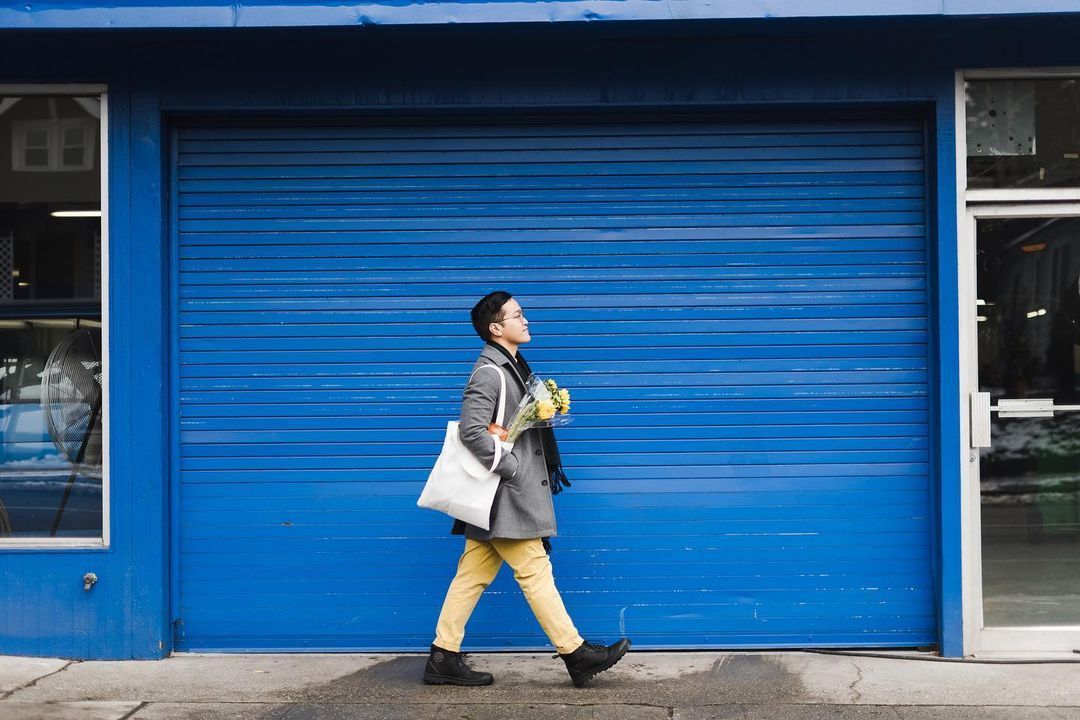
How to beat the Blue Monday Blahs
The third Monday in January, coined Blue Monday in 2005, is widely cited as “the most depressing day of the year.”
While the scientific community remains somewhat split on the day’s legitimacy, there is no doubt that winter—and this winter in particular—brings with it a host of mental health challenges. As we face yet another season in lockdown, with the holiday celebrations behind us, isolation from our friends and family, minimal daylight, and frigid temps, it’s no surprise that the winter months can be enough to test even the most resilient among us.

But it’s important to remember that buckling under the weight of the day isn’t inevitable. Awareness about our mental wellness shouldn’t be relegated to a single event, month, or hashtag. In addition to seeking qualified mental health support when you need it, there are little everyday ways to build self-care into our routines. If you’re feeling a bit blue this Monday, here are some tips to get the serotonin pumping.
-
Invest in Rest
Sleep does a body good, but it’s not just about the number of hours you get. Quality is just as important as quantity. If you don’t have one already, consider building a bedtime routine. Make sure you give yourself ample time to settle down before turning in, limiting your exposure to blue light and taking a break from your phone, tablet, or TV. Read a few pages from your book (paper, not Kindle), have a warm bath, drink some caffeine-free tea, or do whatever analog activity helps your brain power down.
-
Get Moving
We’ve all heard the term runner’s high. As much as some of us might hate to admit it, building in daily movement and activity can have a serious impact on positive mental health. Regular exercise has been proven to lift depressed moods, reduce stress, enhance self-esteem and body image, and produce feelings of happiness and euphoria. The endorphins our bodies make when we get the blood flowing and sweat out the stress of the day can act as a natural mood booster!

-
Phone a Friend
The COVID-19 pandemic restrictions have made it hard to maintain social connections, but just because we have to be socially distanced doesn’t mean we can’t be social. If public policy where you live allows, bundle up and get together with friends for a walk, run, skate, or ski in the great outdoors (bonus points for getting fresh air and exercise). If meeting up in person is a no-go, consider setting up a Zoom get-together or phone call with the people you’ve been missing. Whether it’s with your family, friends, or colleagues, staying connected to your social networks is vital when it comes to easing the feelings of isolation and loneliness that can come from a winter inside.
-
Be Realistic
Treat yourself with compassion. Winter is challenging, even in a good year, but COVID has placed an immense physical, mental, and emotional toll on all of us. It can be easy to feel guilty about not finishing your novel or learning a new language during quarantine, but setting small, realistic goals is an easy way to set yourself up for little wins and boost your confidence. Schedule impending tasks into days, weeks, and months. If you have a daunting project on the horizon, start early so you can break it up into bite-sized pieces. And if you just need a bit of time to relax and unplug, give yourself the permission. The world isn’t going to come to an end if you have a nap or go for a walk in the middle of the day. Often, when you take time to recharge, you will come back more productive than before.
-
Treat Yourself
It’s important to celebrate the little things. Give yourself meaningful rewards when you complete something on your to-do list, have a successful day at work, or remember to take the garbage out on time. The gift to yourself doesn’t need to be huge, as long as it’s something that you know you’ll enjoy. Whether it’s your favourite snack or the personal-care item you’ve been coveting, make sure you don’t forget to treat yourself to the finer things in life every once in a while. (Maybe even something from our 2021 essential collection?)

Like with everything, mental health resiliency is a life-long endeavour, and there is no surefire, click-here-for-all-your-answers way to protect and advocate for yourself. It’s estimated that 1 in 4 people struggle with their mental health, which has only become more pronounced since the start of the pandemic. If you need support to deal with stress, anxiety or depression, don’t hesitate to reach out to a qualified mental health professional, and see below for a list of some of the resources available for Canadians.
COVID-19 Supports
Provinces
- Alberta
- British Columbia
- Manitoba
- New Brunswick
- Newfoundland and Labrador
- Nova Scotia
- Ontario
- Prince Edward Island
- Quebec
- Saskatchewan
Territories






Leave a comment
This site is protected by hCaptcha and the hCaptcha Privacy Policy and Terms of Service apply.